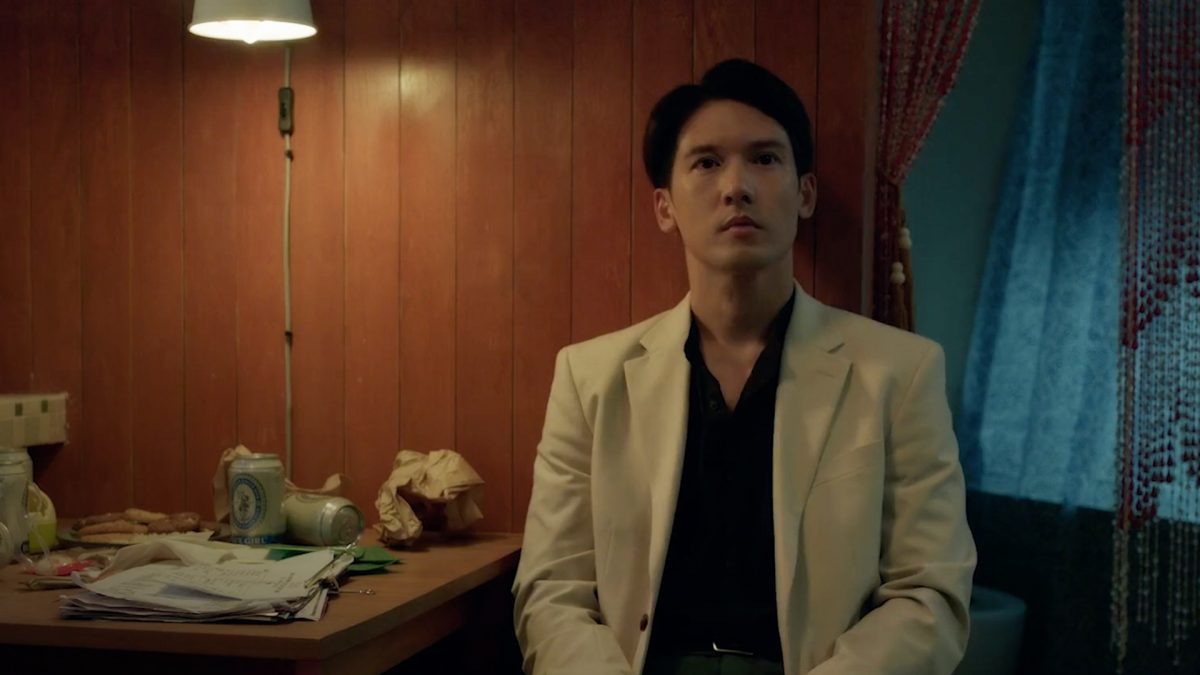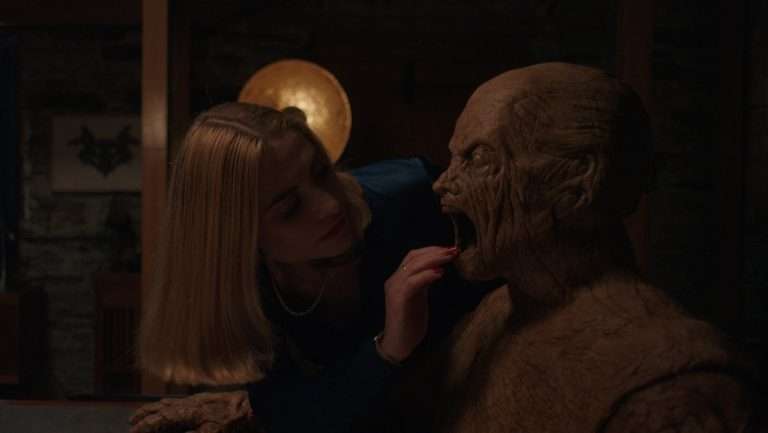“Reimagination” is not a newly coined term, but in recent years, many new-age and contemporary filmmakers have begun using it as a smokescreen, an excuse to remake existing works without fully committing to the fresh and original storytelling. It often feels like giving birth to a child that’s already been born—only now, you’re tasked with reshaping its nose or tinting its skin to better match the shifting hues of the current socio-political climate. By leveraging the familiarity of existing films, a significant portion of the marketing is already done. By making some minor narrative tweaks in the subplots to reflect current social issues, a ‘ready-made’ film is repackaged as something new.
Directed by Bizhan M. Tong, “Tape (2025)” is a reimagining of Richard Linklater’s 2001 indie classic “Tape”, which starred Ethan Hawke, Uma Thurman, and Robert Sean Leonard. Set in Hong Kong, this new version casts Adam Tin-Nam Pak, Kenny Kwan, and Selena Lee as the trio of estranged high school friends as Wing, Jon, and Amy. Selena Lee also co-wrote the screenplay, i.e., her part, with Linklater himself serving as an executive producer.
The plot remains the same as the original that years after graduating from high school, Jon, now a modestly successful indie filmmaker who returns to Hong Kong for the Hong Kong Asian Film Festival. On the eve of his film’s screening, he reconnects with his old friend Wing, a lifeguard and spiralling junkie.
But their reunion isn’t just for reconnecting, but a setup. Wing has hidden cameras in his room and a long-unresolved grudge to air. What begins as a nostalgic get-together quickly devolves into an intense psychological confrontation, with Amy drawn into the heart of their shared past. How Amy is related to Wing and Jon, and what happens when all three are brought back together after years, is “Tape (2025)”.

Wing, at first, appears to be seeking justice, but his motives soon seem entangled with jealousy and narcissism. He is an addict who struggles with self-control, inserting himself into others’ lives as a way to avoid confronting his own. Jon, who initially seems composed and rational, is gradually revealed to be a manipulator, a monster who committed a reprehensible act in his youth.
When he apologizes, it feels performative, less about remorse and more about protecting his career and his family. Amy even questions him whether he is truly sorry in the film. Amy, who once loved Jon, goes through pain in silence, caused by Jon. Her trauma resurfaces not through her own healing journey, but because Wing selfishly dredges it up to satisfy his own moral righteousness—a misguided, even harmful act.
The performances are sincere, with each actor bringing a distinct presence to their role, helping the viewers who are already familiar with Linklater’s version to detach from memories of the original cast. Since the film is set entirely in one location, the challenge lies in sustaining engagement through dialogue alone.
Many filmmakers have successfully turned such limitations into strengths, even as far back as the 1950s, crafting masterpieces through sharp writing and staging. That said, this version struggles to offer something genuinely new, aside from showcasing its capable cast. At times, the dialogue loops back on itself, reinforcing the feeling that we’re watching a filmed play rather than a cinematic adaptation.
Additionally, while there may have been intent behind the visual choices, the camera movements often felt overly deliberate, constantly reminding the audience of their presence and breaking immersion, but the editing helped with the continuous flow. The sound design, in particular, deserves more appreciation. A great example is the moment when Wing scratches the glass-top tea table for the drugs, and then his teeth—it had the audience laughing out loud.

Unlike the previous version, “Tape (2025)” introduces flashbacks with younger versions of the characters, aiming to deepen our understanding of their motivations. While these additions offer minor context, they do little to clear the moral ambiguity that already plagued the original.
As in Linklater’s “Tape,” it leaves the question of who deserves our sympathy? Of course, our instinct is to support the victim, to seek justice even when it’s delayed. Amy’s trauma is undeniable. Her silence is a symptom of pain, not complicity. Yet the film’s portrayal of the characters muddles the emotional waters. Those flashback sequences, except for the end shot, only helped increase the footage. The confusion for the audience on who is right or who needs our sympathy questions our own stand in real life.
After the festival screening, a woman from the audience—an artist and traveller asked director Bizhan Tong and editor Mitchell Tolliday whether they intended to collaborate with the Hong Kong government to promote more #MeToo-themed stories like “Tape”. She also expressed how films like this could spark meaningful dialogue, especially in Asian, South Asian, or Middle Eastern societies where the movement has not yet triggered widespread change.
She continued to refer to how the recent Netflix sensational show “Adolescence” in the UK has stirred similar conversations. Remakes or re-imaginings might help with marketing and the wide release of a film, but paired with a good story, they often continue to give voice to stories that have long been silenced, and could also have the opportunity to create movements in many countries. If a film can impact even one person, that is its success, regardless of its box-office performance. But this creative medium can’t rely solely on good intentions; the craft also needs to be upgraded artistically and revolutionary for its time. “Good intentions alone don’t make good art.





![Ajagajantharam [2022] SonyLIV Review: A film that embraces its trippy chaos](https://79468c92.delivery.rocketcdn.me/wp-content/uploads/2022/02/Ajagajantharam-SonyLIV-2-768x432.jpg)

![The Crossing [2019]: ‘NYAFF’ Review – The Queen of Hong Kong](https://79468c92.delivery.rocketcdn.me/wp-content/uploads/2019/07/The-Crossing-highonfilms-768x512.jpg)